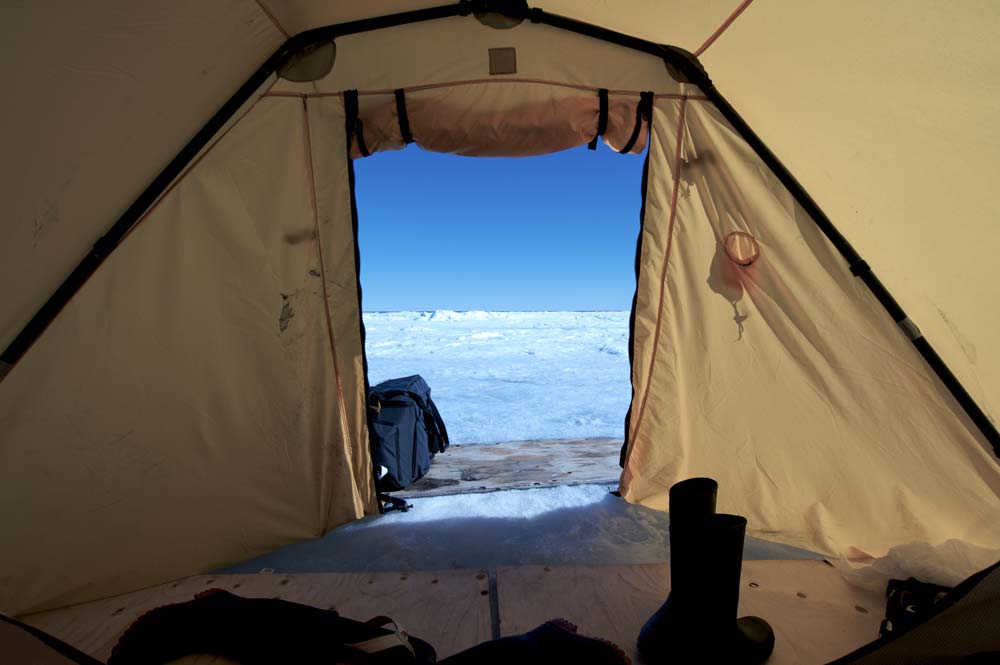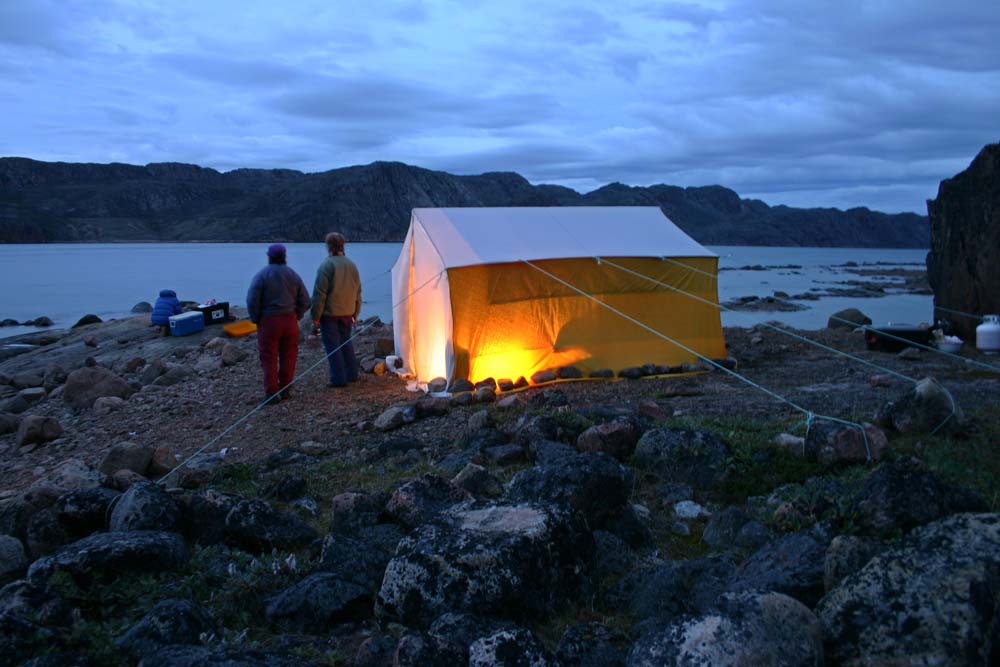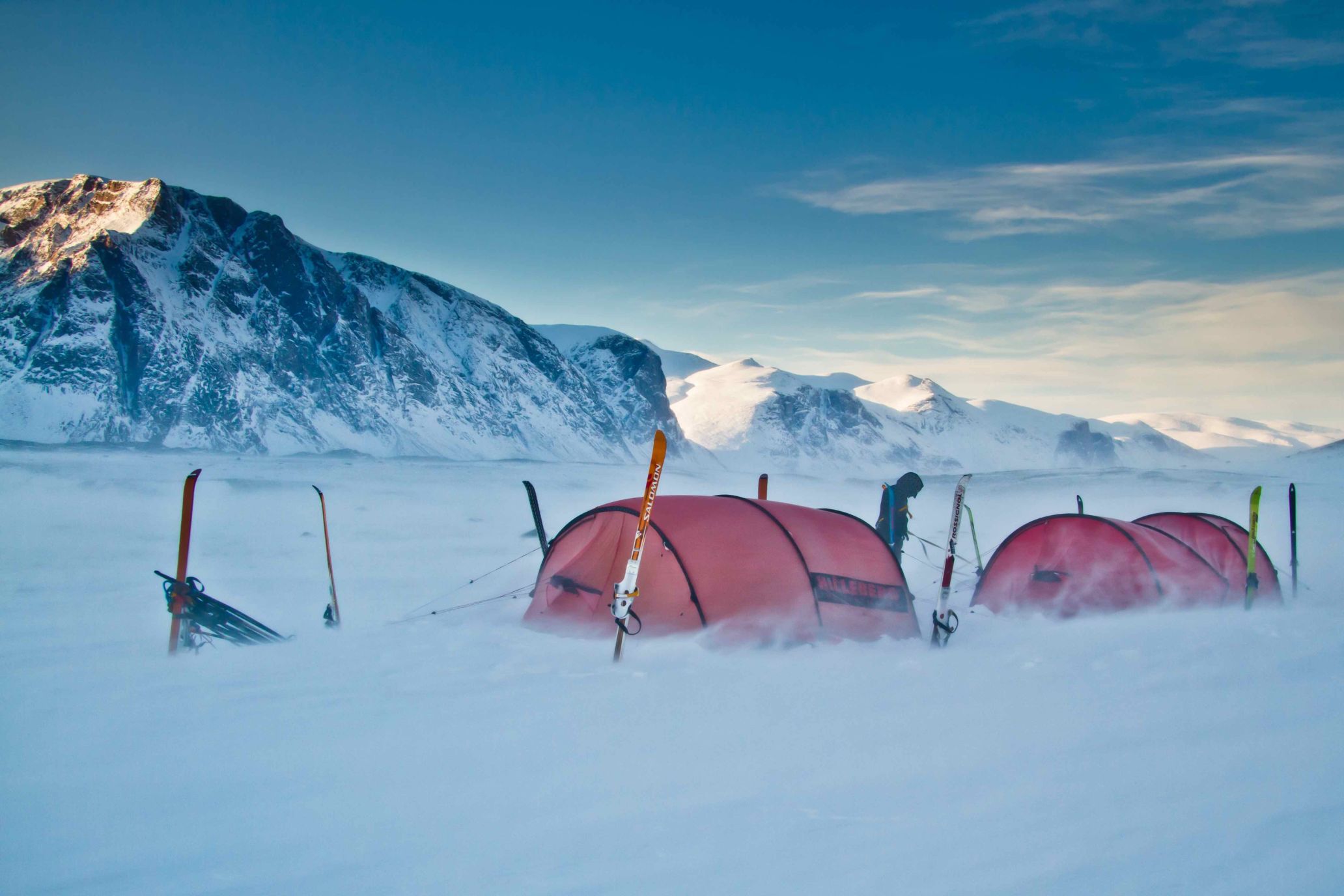An expert guide shares how to safely enjoy the breathtaking sights and rejuvenating solitude found on a Nunavut camping trip.

There’s something magical about escaping from the hustle and bustle of modern life to go camping. Fresh air, rugged accommodations, and the majesty of the outdoors allow for moments of clarity and reflection – something we can all use more of. For travelers who crave the next level of solitude and authenticity, camping in Nunavut offers an unforgettable adventure.
Even for seasoned campers, Nunavut is likely to be an outdoors experience like no other – the landscape here offers sights and sounds that simply don’t exist anywhere else on earth.
The wind moving across the sparse, tree-less tundra creates an unforgettable whisper, and the sheer vastness and beauty of the land may cause you to ponder your own place in the universe. The national parks are still relatively wild and unstructured spaces, where it’s possible to sleep next to archaeological sites that have been untouched for millennia.
In order to fully appreciate a Nunavut camping adventure, it’s essential to come prepared for a safe and comfortable trip.
The first order of business will be to find the perfect site, and in remote Nunavut the process is more open-ended than at typical campgrounds in the south. “You simply find a flat spot for your tent, and camp there,” says Sarah McNair-Landry of Northwinds Expeditions. “If it’s windy, look for a place that’s a bit tucked in out of the wind or sheltered. It’s also important to find a spot with fresh water nearby.”



Once an optimal site has been located, the right gear can make or break a camping trip. After obvious choices like weather-appropriate clothing and sleeping bags, McNair-Landry shares her top five must-haves for a successful arctic sleepout:
- A high-quality tent. The difference between a good tent and a mediocre one will become obvious very quickly. “It’s going to be your home. Even in the rain or a blizzard, with a good tent you’ll be able to count on a good, comfortable sleep. Get a tent from a specialized outdoors outfitter, and if you’re camping in the winter, you’ll need a 4-season tent.” In the summer, bug netting will be a welcome addition, and in the winter, tent flaps that can be covered with snow help to provide insulation and resistance to the wind.
- A GPS device.
- A two-way satellite communication device. Cell service runs the gamut from spotty to nonexistent in many communities, so a way to stay in touch is vital. “You need one in case of emergencies, of course. And if your trip is delayed by a few days but you’re doing okay, you can use it communicate that there’s no need for concern.”
- A first aid kit.
- A white gas stove and fuel. Due to a lack of trees and sparse landscape, building a fire is almost impossible, making a stove essential for cooking in the summer. In the winter, its usefulness increases threefold. “You’ll use a stove to heat your tent, and if you have equipment that you need to dry. You also don’t have to carry water – just use the stove to melt snow.”
For amateur campers who don’t already own the necessary equipment, Nunavut’s outfitting companies (see a list of outfitters and guides here) can provide everything needed to have a safe and enjoyable camping trip. However, McNair-Landry warns that supplies are limited, and unless you have booked a guided expedition, it’s not safe to assume there will be gear available upon arrival. “Many of the smaller communities only have one outfitter, if even that,” she says. “I always recommend to call ahead.”
Some travelers may choose to camp without a guide, but as with many of the adventures that Nunavut offers, hiring a guide can enrich the quality of your trip. An experienced local will not only provide knowledge of the land and bring you to the best spots, but help to ensure the safety of your party. They can also provide an understanding of how the weather forecast may affect your expedition. In Nunavut, even the most carefully-made plans are never a guarantee, as inclement weather may arrive with little warning.

In the remote Arctic, wildlife encounters are always a possibility.
“There are wolves, but most are pretty shy of people,” says McNair-Landry. “Foxes are harmless, but they can get into your food at night. And anywhere you are in the arctic, you should be aware of bears and keep an eye out for them.”
She recommends bringing along bear deterrents: in the summer, a canister of bear spray, and in the winter (when canisters freeze and don’t function) a flare, or a gunshot sound-alike known as bear bangers. If planning to camp in areas with dense polar bear populations, it is strongly recommended to always hire a guide.
Camping in Nunavut may require slightly more specialized gear than the average cottage country clearing, but the experience of sleeping beneath the endless Arctic sky is more than worth the effort. For travelers who are properly outfitted and prepared, the breathtaking unspoiled beauty of this land can, ever so briefly, become a temporary home.